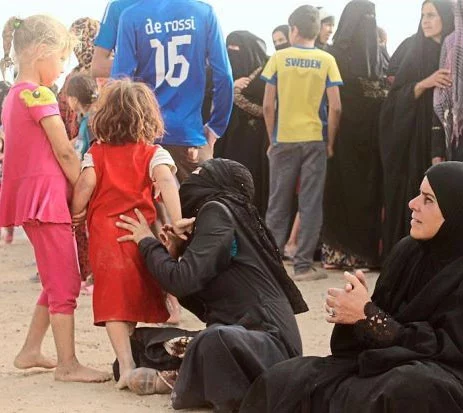HOW is success against terrorism to be measured or even defined? Is there a common measure that works? It concerns the scale of achievement against the terrorist purpose.
The purpose of Islamic State (IS), the transnational terrorist scourge of all nations, communities and faith groups, is creating a bloody alternative state based in Iraq and Syria.
Its leader Abu Bakr al-Baghdadi declared this state or “caliphate” in 2014. Since then it has been conquering parts of these countries and slaughtering innocents. IS has also been recruiting adherents abroad, besides urging supporters and groups to commit terrorist acts worldwide. Carving out territories in existing nations, operating training camps there and instigating mayhem abroad are not unrelated. They all add to the spectre and mystique of the terrorist cult.
This presents a tough challenge for security forces and law enforcement: multiple channels of violent crime to identify, monitor, contain and eliminate. Where to begin? IS has charted new territory that no other terrorist group, except possibly al-Qaeda, has contemplated before. Even so, it has clearly exceeded all others in barbarity. It seems obvious that the fight against IS may begin anywhere so long as resources are adequate, commitment is sufficient and pressure is consistent. Yet, whole nations, including the world’s leading powers, seem impotent against it. IS would pile on the mayhem as it boasted new international recruits and assumed control over vast territories.
In post-Saddam Iraq, the government is weak, the economy incapacitated and the society devastated. Various interest groups kept under the lid for decades were suddenly released to be at one another’s throats. In Syria, decades of stern rule by the Assad family opposed by the West, Israel and some local groups increasingly faced a revolt on multiple fronts, including by IS.
Since the group had become the strongest and most effective force to remove President Bashar al-Assad, his foes were reluctant to be thoroughly rid of it. But since IS had become synonymous with atrocities, something had to be done. So, Western powers and their allies would fight IS, perhaps without eliminating it. Meanwhile, Abu Bakr and his associates would boast of their invincibility and “divinely endowed powers”. It enhanced their image and boosted their recruitment potential.
Tough situation: Displaced Iraqis from the This peaked in 2014-15, when in May last year both Palmyra in Syria and Ramadi in Iraq fell to IS. Those events added further to the terrorists’ claims and prestige. Critics were enraged that despite all its opponents and their pious denunciations, IS was allowed to continue on its deadly rampage. Why are the world’s most powerful military forces not hitting the terrorists hard where it matters – its Syrian base in Raqqa and its Iraqi base in Mosul? Just what would it take for world powers to get their act together to destroy this scourge? The answer, now becoming increasingly clear, is a big power competition.
The two big military pacts involved – the United States with anti-Assad elements and Russia with pro-Assad forces – had been accusing each other of not really targeting IS, even as both claimed to be doing so. This kind of open policy dissonance could not last, so something had to give. It began late last year but proceeded only slowly at first. The Western anti-Assad forces gave the strongholds of IS more (military) attention. So did Russia along with its partners Syria and Iran. By December last year, Ramadi was liberated. Then IS militants were flushed out of Palmyra in March this year.
The outskirts of Marea town (Syria) that fell to IS just a fortnight ago have also been liberated. The same is set to happen to Mambij anytime now. The next big city to be freed may be Fallujah, which is symbolic because it was the first to fall. Now the double grand prize of liberating Raqqa and Mosul are also finally on the table. Over the past two weeks, reports have surfaced about how IS has finally started to lose territory seriously. Suddenly, the two powerful externally directed military alliances seem to be focusing their considerable energies and resources on the administrative heart of IS.
The purpose may still not be to crush IS completely, at least not uniformly so, but rather to prevent the other side from claiming a moral victory from being seen to do so. Aerial bombardments have lately hit not just ports and oil stockpiles that IS is using to generate export revenues, but dozens of tankers to cripple its shipping and export connections. Now every foe of IS is salivating at the thought of being celebrated globally for that victory march into Raqqa.
Before that, however, IS still possesses much by way of resilience and survival skills. Weeds die harder. It has already started to hit back in the way it knows best – conventional terrorism such as suicide bombings, rather than pretensions of running an alternative state. It has claimed responsibility for two such bombings in and around Baghdad three days ago, which killed 50 and wounded nearly 100.
Faced with new challenges on one front, the terrorist group may just be morphing into another form that is harder to prevent and detect.
Article by Bunn Nagara which appeared in The Star, June 12, 2016.





